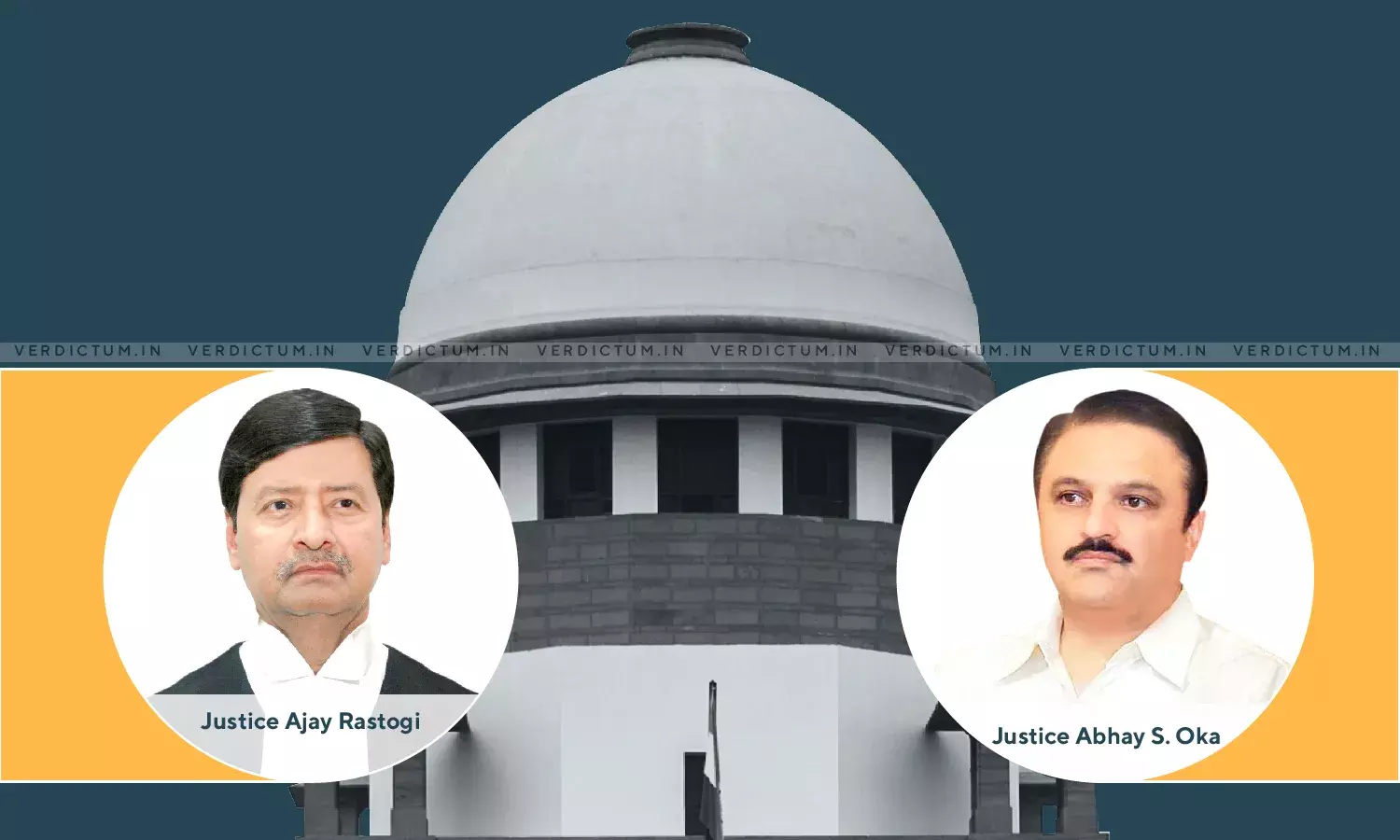Designate More NIA Special Courts– SC Directs West Bengal Government While Granting Bail In A UAPA Case

A two-judge Bench of Justice Ajay Rastogi and Justice Abhay S. Oka while granting bail to an accused who had completed 9 years in incarceration as an undertrial prisoner, has directed the state of West Bengal to designate more dedicated courts of Sessions as Special Courts for the trial of offences specified in the schedule appended to the NIA Act, 2008.
Advocate Mr. Satya Mitra appeared for the Appellant-Petitioner (Accused) during the proceedings before the Court.
An appeal was preferred by the Appellant-Accused No. 6 who was charged under Sections 120B, 121, 121A, 122 IPC, Section 25(1A) of the Arms Act 1959, Section 5 of the Explosive Substances Act, 1908, and Sections 18, 20, 40(1) (b) (c) of the Unlawful Activities (Prevention) Act, seeking post-arrest bail which was rejected by the Trial Court at first and then by the High Court at the second instance.
It came on record in the case that there were 298 PWs in the calendar of witnesses as referred in the chargesheet, however, in the counter affidavit filed by the Respondent, it was stated the Prosecution would examine only 100 to 105 PWs.
It was contended by the Appellant that the charges against him were undoubtedly serious however all the charges had to be balanced with certain other factors like the period of incarceration which the Appellant had undergone and the likely period within which the trial could be concluded. Also, the Appellant was 74 years of age.
While the Respondent argued that the requirement of law as envisaged under Section 19 of National Investigation Agency Act, 2008 mandates that the trial under the Act for any offence by a Special Court shall be held on a day-to-day basis on all working days and have precedence over the trial of any other case and Special Courts are to be designated for such an offence by the Central Government in consultation with the Chief Justice of the High Court as contemplated under Section 11 of the Act 2008 but the ground realities were totally different as in the case.
The Apex Court noted that the Appellant was in custody since 6th July 2012 and had completed nine and half years of incarceration as an undertrial prisoner, this fact could not be ignored.
"This Court has consistently observed in its numerous judgments that the liberty guaranteed in Part III of the Constitution would cover within its protective ambit not only due procedure and fairness but also access to justice and a speedy trial is imperative and the undertrials cannot indefinitely be detained pending trial," the Bench opined.
Further, the Court added, "Once it is obvious that a timely trial would not be possible and the accused has suffered incarceration for a significant period of time, the Courts would ordinarily be obligated to enlarge him on bail."
Additionally, the Bench observed, "Timely delivery of justice is part of human rights and denial of speedy justice is a threat to public confidence in the administration of justice."
"In the above circumstances, we are of the view that the appellant accused has made out a case for grant of postarrest bail pending trial," the Court held.
Furthermore, the Court noted, "It is clearly demonstrated from the instant case that after the chargesheet came to be filed in the year 2012, charges have been framed in June 2019 and looking to the voluminous record and number of the prosecution witnesses which are to be examined, it may take its own time to conclude and indeed the undertrial prisoner cannot be detained for such a long period of incarceration noticed by us in the instant case."
The Court further directed the State of West Bengal to take up the issue and designate more Courts of Sessions as Special Courts for the trial of offences specified in the schedule appended to the NIA Act, 2008.
"At the same time, the Central Government may also, in consultation with the Chief Justice of the High Court, Calcutta may exercise its power and take up the issue at the earliest so that such trials which are pending under the Act 2008 may go ahead speedily and the mandate, as intended by the legislature in its wisdom, reflected from Section 19 of the Act, is being complied with in its letter and spirit," the Court held.
In the light of these observations, the Court allowed the appeal and set aside the impugned judgment of the High Court. The Court further directed the Appellant-Accused be produced before the Trial Court and be released on post-arrest bail.

